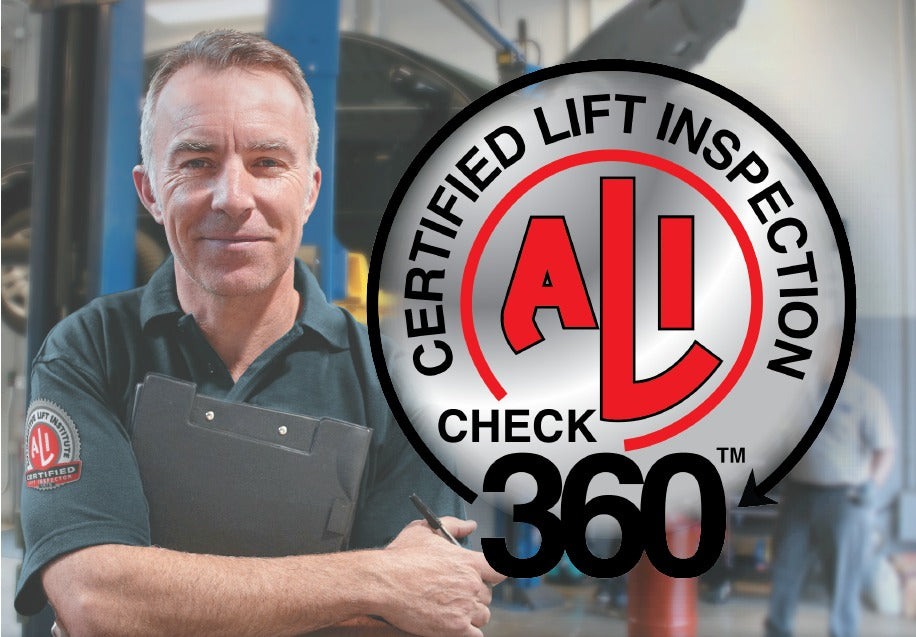You know that you need to get your vehicle lifts inspected every year, but where do you find qualified lift inspectors and how do you know if the lift inspections they provide are thorough?
Start by hiring an ALI Certified Lift Inspector. Inspectors who are certified by ALI have been tested and found qualified to inspect any automotive lift in the field, regardless of age, model, manufacturer or location. But don’t stop there. Tell the inspector that you want a Check360™ Certified Lift Inspection – and don’t settle for anything less.
Check360 is a comprehensive inspection process that is backed by ALI as meeting all the requirements outlined in the national safety standard covering automotive lift operation, inspection and maintenance, ANSI/ALI ALOIM:2020. A Check360 Certified Lift Inspection includes extensive examination of the lift structure, electrical and mechanical components, as well as review of training logs, operating instructions and safety materials.
Only ALI Certified Lift Inspectors can perform Check360 Certified Lift Inspections, but simply hiring a certified inspector doesn’t guarantee you’ll get a Check360 inspection. Some inspection companies offer multiple tiers of inspection, not all of which meet the ANSI standards. That’s why it’s important to ask for a Check360 Certified Lift Inspection by name.
At the conclusion of a Check360 lift inspection, the ALI Certified Lift Inspector will provide a thorough report of the results, including any concerns and recommendations. The inspector will apply an exclusive Check360 Certified Lift Inspection label to every lift that passes inspection. The copyrighted label features the distinctive Check360 mark in the center, the ALI Certified Lift Inspector hologram, a serial number matching the lift inspection report, and the inspector’s individual four-digit ID. There is a new label color every year and all unused labels must be accounted for at the end of the year.
If your lift inspection label doesn’t have two holograms and the Check360 mark, you did NOT receive a Check360 Certified Lift Inspection.
When you get a Check360 Certified Lift Inspection, you get the knowledge, comfort and assurance that your lift has been inspected in compliance with the national safety standard and industry best practices. And since Check360 is the only lift inspection backed by ALI, you’re not just taking the inspector’s word for it.

